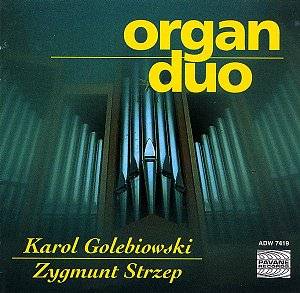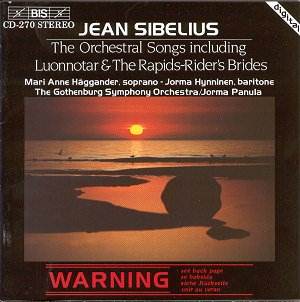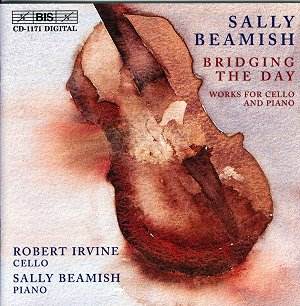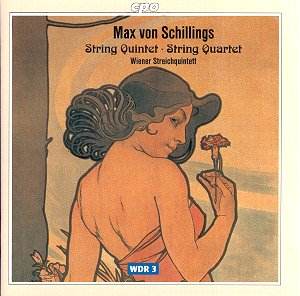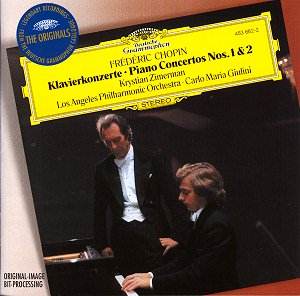 Composer: Frédéric Chopin (1810-1849)
Composer: Frédéric Chopin (1810-1849)
Works: Piano Concerto No. 1 in E minor, Op. 11 (1830), Piano Concerto No. 2 in F minor, Op. 21 (1829)
Performers: Krystian Zimerman (piano), Los Angeles Philharmonic Orchestra, cond. Carlo Maria Giulini
Recording: DDD, recorded 1979 (Op. 11) and 1980 (Op. 21)
Label: Deutsche Grammophon Originals 463 662-2
Frédéric Chopin, a pivotal figure in the Romantic era, composed his piano concertos during his youth, offering a glimpse into both his burgeoning style and the emotional depth that would characterize his later works. These concertos, particularly the E minor, encapsulate the lyrical beauty and pianistic innovation for which Chopin is renowned. They stand as landmarks in the concerto repertoire, setting a precedent for the integration of virtuosity and expressiveness, a duality that Krystian Zimerman and Carlo Maria Giulini navigate with remarkable artistry in this recording.
Zimerman, then in his mid-twenties, exhibits an enviable clarity and precision in his interpretation of the concertos. His approach to the E minor concerto’s first movement is marked by a delicate touch that allows the lyrical phrases to bloom organically. The opening orchestral introduction, conducted with a suave authority by Giulini, seamlessly transitions into Zimerman’s entrance, where his articulation of the melody is both fluid and meticulously nuanced. The contrast between the tempestuous sections and the reflective passages is handled with remarkable deftness, and the piano’s voice remains a focal point without overshadowing the orchestral contributions, which, though often relegated to a supporting role, are delivered with conviction.
In the second concerto, Zimerman’s interpretation takes on a more contemplative hue. The Andante, with its lush melodic lines, showcases Zimerman’s ability to infuse the music with emotional depth while maintaining the structural integrity inherent in Chopin’s writing. The interplay between the piano and orchestra is particularly striking here; Giulini’s orchestra provides a warm, enveloping sound that complements Zimerman’s lyrical phrasing. The technical demands of the final Rondo are met with a brilliance that highlights Zimerman’s virtuosic command, yet he imbues the performance with a sense of spontaneity that keeps the listener engaged.
The engineering quality of this recording is exemplary, capturing the clarity of Zimerman’s fingerwork while allowing the orchestral textures to bloom with richness. The balance between the soloist and orchestra is handled with care, ensuring that neither overwhelms the other, thus preserving the intimate dialogue that is so critical to these works. The sonic detail is particularly impressive in the piano’s higher register, where Zimerman’s meticulous control results in a shimmering resonance that is nothing short of captivating.
Comparing this recording with Zimerman’s later interpretations from 1999 reveals the evolution of his artistry. The earlier performances, while undeniably polished and elegant, exhibit a more restrained approach to emotional expression. Zimerman’s subsequent interpretations are imbued with a greater sense of freedom and a willingness to explore the extremes of dynamics and tempo. This raises an intriguing question about authenticity and interpretation in performance: does age and experience inevitably lead to a deeper understanding, or does it risk straying into the territory of indulgence?
These performances of Chopin’s concertos are indeed classics, not merely for their historical significance but for their enduring ability to communicate the emotional core of the music. Zimerman’s youthful interpretations, while perhaps less daring than their later counterparts, reveal the foundational qualities of these concertos and underscore the genius of Chopin’s writing. The artistry captured in this recording not only honors the composer’s legacy but also offers listeners an opportunity to appreciate the evolution of one of today’s leading pianists, making it an essential addition to any classical music collection.
